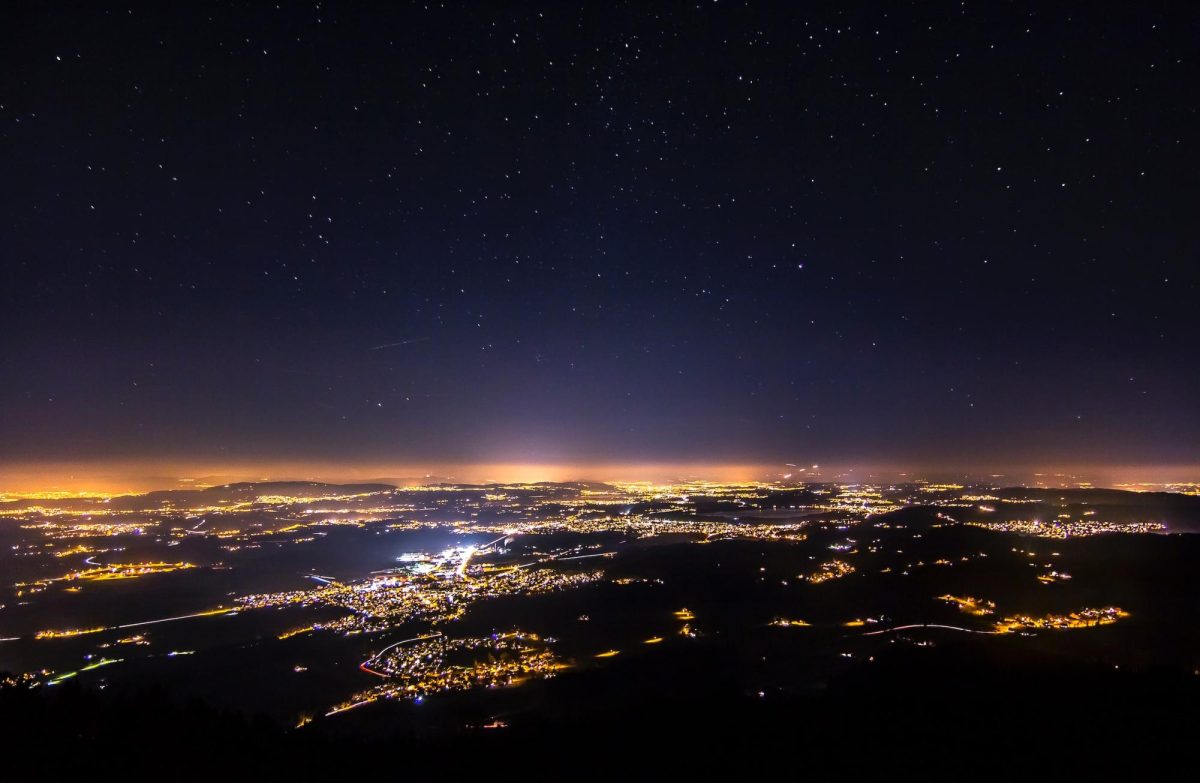Take a look at the night sky. Likely, you will only see a few stars, maybe 20 if you are lucky. But what if this was not really how the sky looked even just 100 years ago? Back then, a person could view thousands of stars. What happened, you might ask? Light pollution happened.
The term light pollution can be defined as the excessive use of artificial outdoor light and it is largely an effect of industrial civilizations. It is typically at its worst in densely populated areas; especially in large cities like Chicago, due to mass amounts of outdoor lighting; flood lights; and all the bright signs that fill the cities and illuminate the night sky; all of which make it impossible for us to see much further than the brightest of nearby stars.
In fact, according to a recent report shared by NPR, “The luminous glow of light pollution prevents nearly 80 percent of people in North America from seeing the Milky Way in the night sky. … Our home galaxy is now hidden from more than one-third of humanity.” But how exactly does light pollution obscure our viewing of the stars?
Imagine trying to read something on a dim phone in the dark versus, in the sunshine. In the dark, when there is no light obstructing it, the screen is easily viewable. However, in sunlight, the glare blocks the phone screen making it unreadable. This is essentially how light pollution works, except the stars are the phone screen, and the excess light is the sun. Similar to a dim phone, stars can only be seen in low light levels.
Over the years, the dramatic increase in light pollution has caused a multitude of problems. These problems range from the simple disappointment of having fewer visible stars, to more serious effects such as the destruction of the night ecosystems.
An article from the National Library of Medicine states, “Sea turtles provide one dramatic example of how artificial light on beaches can disrupt behavior. Many species of sea turtles lay their eggs on beaches, with females returning for decades to the beaches where they were born to nest,” the article continues. “When these beaches are brightly lit at night, females may be discouraged from nesting in them; they can also be disoriented by lights and wander onto nearby roadways, where they risk being struck by vehicles.”
Light pollution does not just affect sea turtles though. It also affects all sorts of wildlife.
“Animals need to sleep at night too,” said Sally Oey, an American astronomer at the University of Michigan, “and nocturnal animals need the cover of darkness to come out and go about their lives. The disruption to the ecosystem is so bad that bird and insect populations have plummeted.” She adds, “You may have noticed that fireflies are declining, for example. If we destroy the nighttime ecosystem, then we also destroy the daytime one. We can’t have one without the other.”
As you can see, light pollution affects every part of our world as we know it. The good news is, we still have time to fix it. But doing so will require genuine effort from all of our population.




